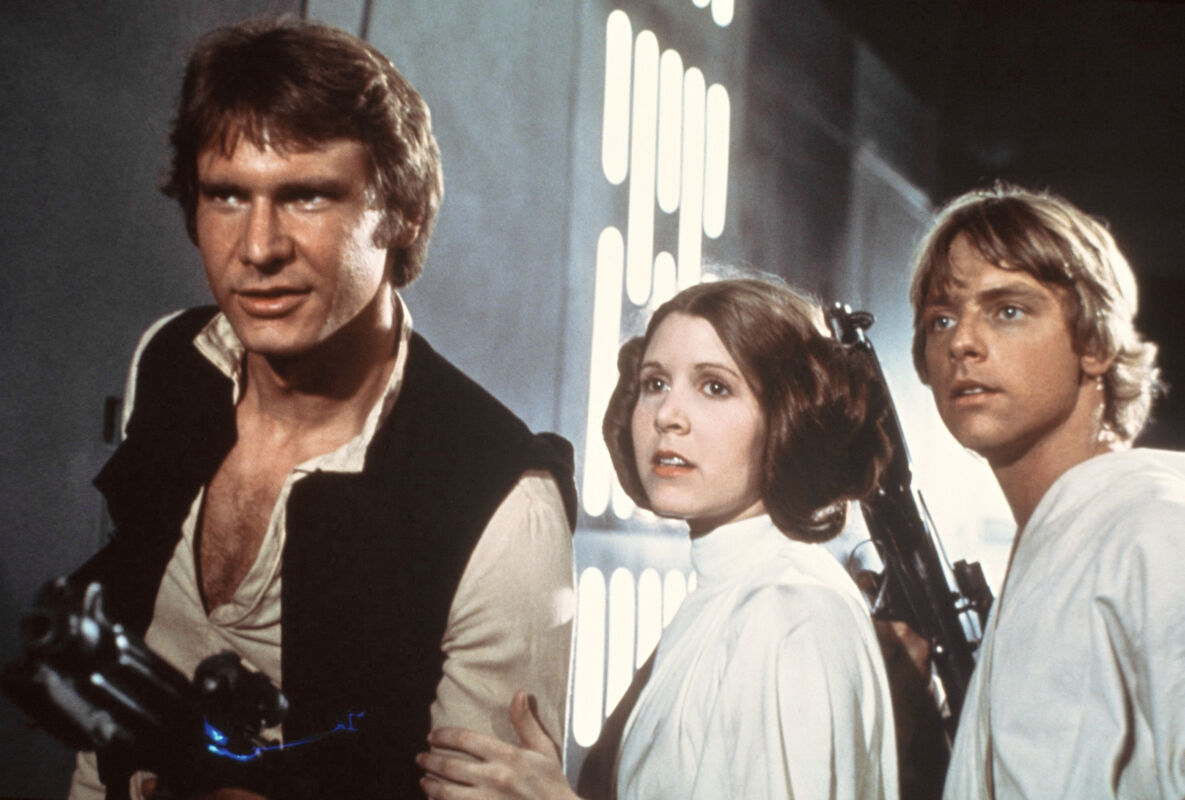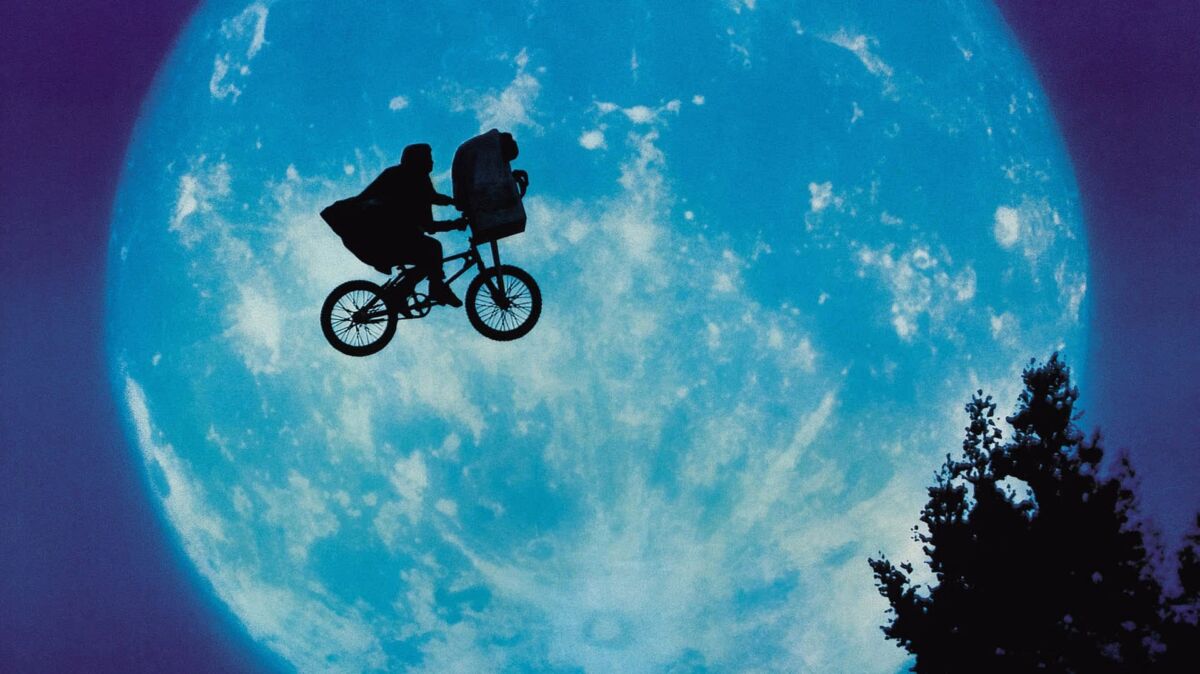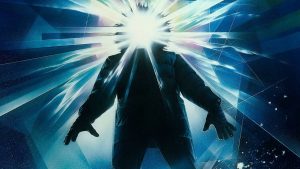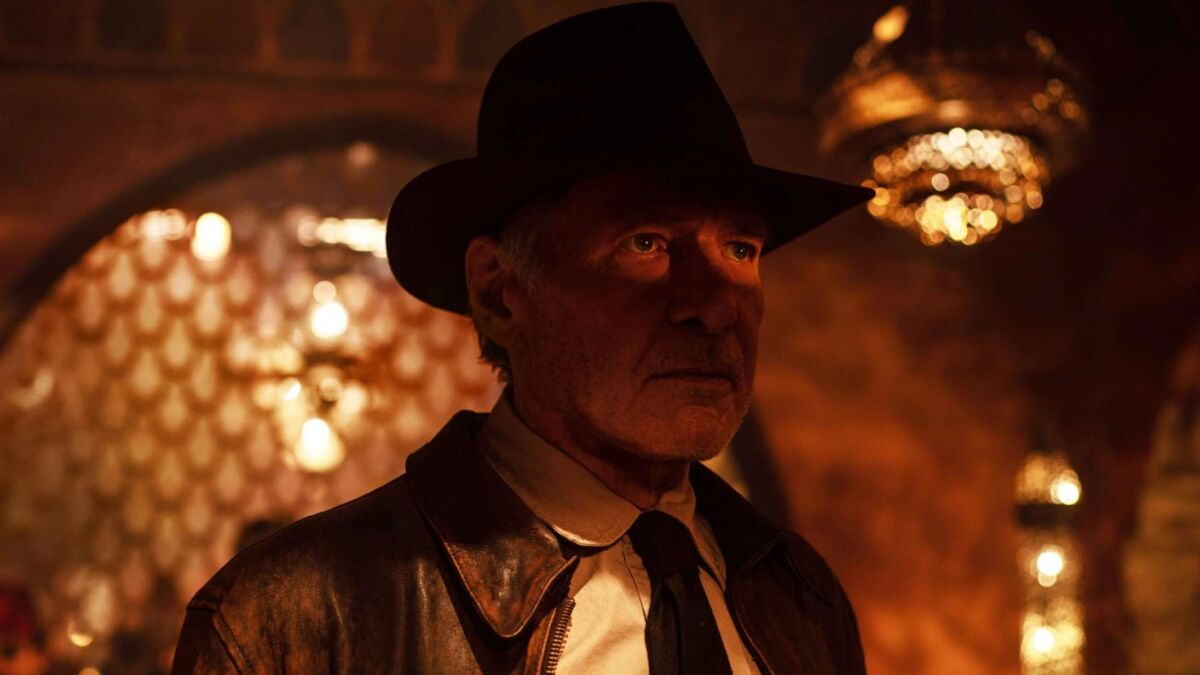1982: What a year for cinema. June 1982, especially, saw the releases of titles like Star Trek II: The Wrath of Khan, Poltergeist, E.T. the Extra-Terrestrial, The Thing, and Blade Runner — films greatly celebrated to this day. Outside of June were First Blood, 48 Hrs., Fast Times at Ridgemont High, and so many more titles that cement 1982 as such a solid year for film releases.
It only makes sense, then, that there’s a mini-docushow all about the films of 1982 currently airing on The CW called Greatest Geek Year Ever: 1982. An in-depth look at the year’s cinematic offerings and their impact and legacy, there’s so much to learn and analyze from the show’s discussion on what multiple of its talking heads claim is the “greatest geek year ever”:
Geek Culture is Worth Celebrating

“[June 1982’s] the month and year that I officially fell in love with movies,” film critic Shawn Edwards says. Much like they did for Edwards, these films turned so many viewers (especially young ones) into cinephiles and geeks, people who saw movies as something that can shape their worldview, something they’d wait in line for two or three hours for. As an individual queuing to see a film from an old newsreel says, “Waiting in line is even a good time.”
“You can’t separate people my age from the movies of the early ’80s because they’re so part of who we were growing up,” says 41-year-old actress and director Brea Grant. A big reason why is that this decade saw analyzing movies becoming more mainstream: 1982 was the premiere of the television program At the Movies with Gene Siskel and Roger Ebert.
“Imagine, film critics becoming household names,” says film critic Leonard Maltin. Siskel and Ebert both passionately talked about movies, a passion so deep and apparent it encouraged many to love films just as deeply and passionately, furthering celebrating geek culture. The two even disagreed heavily at times, leading to sites like Metacritic and Rotten Tomatoes celebrating the aggregation of different opinions from movie critics.
You could easily argue that’s why there’s so much nostalgia for the 80s nowadays: it was the decade when being a geek truly started becoming a celebrated thing. “I’m a proud geek – was one before it became fashionable,” says producer Darin Scott. More than just 1982, the 80s could even be the greatest geek decade, as it gave the public franchises like Star Wars, Indiana Jones, and Friday the 13th, franchises that people still obsess over and studios still try to milk as much as they can.
Studios of today take these familiar properties and try to find ways to build on them as a means to invest in safe titles while shallowly trying to engage the nostalgia of present-day geeks. Greatest Geek Year Ever, however, argues that 80s movies celebrated geekdom thanks to another reason:
80s Movies Were Great Thanks to Taking Risks

We are living in the age of reboots, remakes, and sequels. Disney is constantly remaking their animated classics. This summer is currently seeing numerous new entries to franchises like Indiana Jones, Transformers, Insidious, and Mission: Impossible. Worst of all, movies that try to do something original (at least cinematically) like Joy Ride, Renfield, and Ruby Gillman, Teenage Kraken constantly bomb or underperform at the box office.
“With the new way in which they decide what big movies are made, you’d never have a Star Wars today, you’d never have an Indiana Jones,” says Independence Day producer and screenwriter Dean Devlin. In the first episode of Greatest Geek Year Ever: 1982, he tells a story of how years ago, he went out with a movie and all the studios said it was a great script, but none wanted to make it. When he asked one head why, his reply was that it wasn’t based on something else.
However, we’re currently seeing that being based on a recognizable cinematic property isn’t always a sure guarantee of success. Indiana Jones and the Dial of Destiny is failing financially, The Flash was a box office disaster, and Grease: Rise of the Pink Ladies underperformed so much that it’s no longer available on Paramount+. The latter’s a move that’s been criticized as disrespectful to artists, but it does show even the studios know how badly they’re bungling this.
If there’s anything film studios can learn from this, it’s to take risks with the movies they choose to produce. “No one actually can make a creative decision without someone sitting down and doing a spreadsheet on it,” says executive producer Gabrielle Stanton. “I would say to the people making the decisions, you know, maybe take a few more chances.”
After all, Poltergeist and E.T. the Extra-Terrestrial were both big successes, E.T. especially being the highest-grossing film of all time for 11 years until Jurassic Park, another original film from Spielberg, surpassed it in 1993.
The films of the 80s made such an impact because they introduced viewers to worlds they had never been to and characters they had never met before. The success of 2023’s M3GAN, a horror movie released last January that wasn’t based on any pre-existing intellectual property, proves people are still hungry for new and original stories.
Great Art Knows No Age

Both The Thing and Blade Runner underperformed at the box office, a fact crazy to anyone who wasn’t there as both are considered two of the best films ever made. Carpenter’s film, especially, was a disappointment both financially and critically. According to Greatest Geek Year Ever: 1982, when director John Carpenter looked at a magazine with E.T. on the cover, he said, “Well, that’s it for The Thing.”
“The critics at the time just didn’t get it,” says Thomas Vitale from SyFy and Chiller. “They didn’t understand what Carpenter was trying to do.” Roger Ebert called the title “the barf bag movie of July” and while Siskel liked it and found the element of suspicion interesting, Ebert told him, “Very few people are going to read it as your kind of allegory of McCarthyism.”
And yet, not a single cinephile would claim that either The Thing or Blade Runner has been even somewhat forgotten. Both are constantly cited among the best entries in their respective genres, The Thing got a prequel in 2011 also called The Thing, Blade Runner got a sequel in 2017 called Blade Runner 2049, and a The Thing reboot is currently in production.
These films being box office disappointments might even be part of the reason they’re so well-regarded now. “I remember being upset that it wasn’t doing well,” says screenwriter Zak Penn regarding Blade Runner. “I mean, now, rooting for a Marvel movie is like rooting for the Yankees.”
It was easy for most people to root for Blade Runner too, as the film was so different from every other summer release at the time. “The idea that you could make movies as varied as Poltergeist, E.T., and Blade Runner, it’s kind of a maturing of the summer blockbuster,” says Penn.
Director and screenwriter Robert Burnett goes even further, saying, “When you get to the end of that film, it asks the question: what does it mean to be human? […] There are ethical questions that Blade Runner was grappling with that we didn’t yet know we needed to answer. I think that’s something that’s going to continue to resonate for the next hundred years.”
Studios today are so worried about new original titles not finding an audience, they bank on nostalgia to get warm bodies into theaters. Nostalgia itself, however, shows us that box office results don’t always dictate the fate of a movie’s legacy. Even The Dark Crystal, another 1982 film that underperformed financially, has garnered a well-deserved cult following as well as a prequel series in 2019 called The Dark Crystal: Age of Resistance.
“Could you even imagine what the conversations were like at that time?” says executive producer Ted Biaselli. “We’re going to make an entire movie with puppets, no people, and it’s going to cost just as much as a movie with people. It’s gonna be risky and crazy, and we’re gonna take chances.”
Celebrating and Challenging Nostalgia

It’s incredibly disappointing to think about how future generations will look back at the 2020s and see it as a decade ruled by intellectual property. However, it’s also possible that by then, movies like The Little Mermaid and Transformers: Rise of the Beasts will be long forgotten, and movies like M3GAN and Turning Red will be the films this decade is known for.
Either way, Hollywood is learning all the wrong lessons from nostalgia. They seem to think that Star Wars was a success because it was Star Wars, which is true, but not the whole story.
“Star Wars was a gateway,” says Edwards. “We were hooked on sci-fi.” So many nostalgic films earned the nostalgia we have for them now not because they were familiar, but because of the complete opposite — they were new, unfamiliar, and introduced audiences to brand-new worlds, stories, and characters. Best of all, they were fun and well-made, and all that added up made for some legendary times at the movies.
The 80s gave us Star Wars, Ghostbusters, Top Gun, Evil Dead, Indiana Jones, The Little Mermaid, and Friday the 13th. The 2020s have given us Star Wars, Ghostbusters, Top Gun, Evil Dead, Indiana Jones, The Little Mermaid, and, pretty soon, Friday the 13th. “Box office was very much dominated by high concept ideas,” says director Ron Howard, whereas the current decade is dominated by those same ideas, no longer new.
There’s a lot to learn through retrospectives, and Greatest Geek Year Ever: 1982 is a fantastic exploration of beloved movies past, both celebrating nostalgia and challenging Hollywood’s current obsession with it. Insightful, edifying, and effervescent, this mini-docushow is a must-watch for cinephiles of any age.
READ NEXT: Stranger Things: Attack Of The Killer Nostalgia
Some of the coverage you find on Cultured Vultures contains affiliate links, which provide us with small commissions based on purchases made from visiting our site. We cover gaming news, movie reviews, wrestling and much more.



